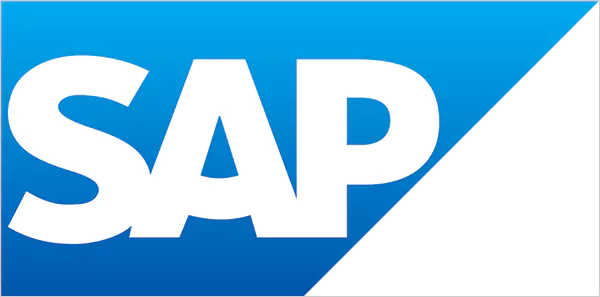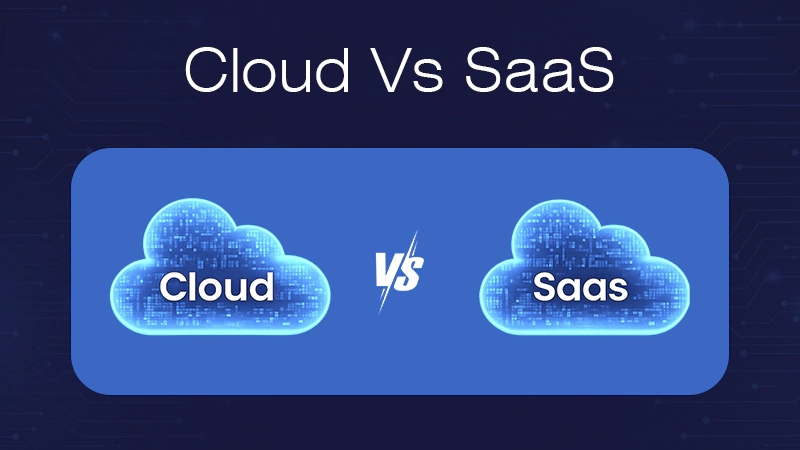Ans: SAP is systems, applications, and products in data processing. It is a unified solution that streamlines all the core business processes in one place.
What is SAP? The Comprehensive Guide to SAP Software, Its Benefits, and Features
Business is a big umbrella that involves finance, operations, HR, sales, and so much more. All these aspects are different from one another yet work in coherence to make the company successful. But truly, making everything in sync is easier said than done, and that’s why SAP Software was introduced to solve this problem.
If you are running a business, you need a cutting-edge tool like the SAP system that can harmonize your operations, sales, and finance evenly, so you can make smart decisions and scale with confidence. Want to know what is SAP? We’ve got you covered!
Learn about the history of the software, the popular options available, and why the tool is used in this blog.
What is SAP?

By technical terms, SAP definition is systems, applications, and products in data processing. It is software that was launched with a vision to build a standard tool for businesses that lets them streamline all the processes in real-time. With this system in hand, you can look into financials, track inventory, check out sales, manage accounting, and operations under a single roof.
This unified system not only helps businesses to scale and prosper, but also eases the task and reduces errors. Today, from small companies to Fortune 500 companies, all have SAP Integration.
So, what is SAP, and what does the system stand for? — It stands for systems, applications, and products in data processing. It is an ERP (Enterprise Resource Planning) tool that provides an integrated platform for all business processes and data analytics.
The History of SAP
The SAP system was launched in 1972 by five IBM employees in Germany. The idea was to create a solution to help businesses streamline all aspects. After designing the ERP (Enterprise Resource Planning) programming system, it gained its first major success. More and more companies started opting and integrate it into their system to optimise management.
Talking about a bit of the history, the company launched the first product, R/1, which was a data processing system that tracks and reports in real-time. Following the first product, R/2, R/3, ECC (ERP Central Component), and S/4HANA were launched as the updated versions.
With every update, the company strived for better performance, more functionalities, and a cloud-based network solution. Using the SAP system today is a no-brainer, as every small to large-scale brand uses it for its business.
Now that you’re aware of what the system is and its history, let’s go ahead and see what SAP software use cases are in the next section.
How does SAP Work?
The SAP software is not limited to any particular industry. It can easily mould according to the business needs and brings the best features to the table. So you can say that this system is top-notch adaptability and flexible functionalities that work for different industries alike:
- Manufacturing: Manufacturers of all types of goods can optimise processes from sourcing raw materials to delivering finished products. They use models like PP (Production Planning) and MM (Materials Management) to oversee inventory, quality checks, and minimise wastage.
- Retail: Retailers heavily rely on S/4HANA Retail and Customer Activity Repository (CAR) to oversee point-of-sale systems, inventory levels, pricing tactics, and customer loyalty initiatives.
- Finance and Banking: Business in the field of finance needs solutions that ensure regulatory compliance, manage risks, and facilitate financial reporting. The system’s real-time auditing can help prevent fraud and foster transparent practices.
- Medical and Pharma: SAP allows medicine and pharma companies to handle sensitive data, maintain compliance with the law, and monitor the inventory and sales. It also helps to secure records of patients and medical practitioners under the FDA regulations.
That’s not it, the system can work its magic in education, public, aerospace, and defence sectors as well. Moving ahead in what does Sap mean article, let’s discuss its features in the next section.
Key Features of SAP Software
What is Sap software USP? — It has powerful features, modular architecture, cutting-edge data insights tools, and the ability to offer real-time analytics to businesses. The system in itself is a whole world, and that is due to its core features that we’ll discuss below:
- Scalable Framework: It is designed with a modular structure, enabling companies to adopt only the necessary components like finance, human resources, or supply chain, and expand the features as they grow in the future. This flexibility makes the software suitable for small and large enterprises alike.
- Data Processing in Real-Time: HANA and its other versions offer memory-computing, which allows one to track data and make informed decisions in real-time. As the data updates automatically and instantaneously, the decision-making becomes faster, contributing to better business.
- Complete Business Integration: The best thing it does is provide end-to-end business integration. Meaning, you can connect all departments, finance, logistics, HR, sales, and supply chain under a single platform. This ensures that the data flows organically and smoothly through all the departments.
- Industry-Specific Solutions: The software deals with all types of businesses working in various industries. As every industry has its own set of needs, the software offers extensive customizability and industry-specific solutions tailored to the company’s workflow and compliance needs.
- User-Friendly Interface: Even after being an advanced software, SAP offers a user-friendly interface and the best user experience with its hyper-intuitive, mobile-friendly, and task-focused mechanism.
- Multiple Deployment Options: Whether you require cloud-network, hybrid, or on-premise support, it does a great job in all of them. Businesses can host the software in the way they like, depending on their infrastructure and budget.
To support these core features, SAP is built on robust data security protocols to harmonise its offerings with global compliance standards.
What are the Advantages of SAP Software?
Choosing and implementing the software can take your business to new heights by providing the ability to scale, adapt, and stay in the game. The creator company is a global leader in its space and thus, tries to instil the same qualities in its users as well.
Here’s why the tool is used and its advantages:
- Better Efficiency and Productivity: It automates the routine tasks, optimizing the workflow, and streamlining operations. It reduces manual labour and risks and errors, letting you focus on better tasks.
- Centralized Data Management: Talk about HR, logistics, supply chain, and whatnot, you’ll find everything with just a few clicks. This approach minimizes data loss, duplication and carries smoothly throughout the network.
- Scalability and Flexibility: If your business is looking for a chance to scale, it needs a system that offers a unified solution. Its design can evolve according to business needs and match the industry standard.
- Global Reach: It is built to facilitate operations in multiple currencies, languages, and countries, making it perfect for international companies. This seamless international expansion helps to comply with regional tax laws, labour policies, and reporting standards.
- Security and Risk Management: The software is built on strong security protocols, which help to detect fraud, install encryption, and protect data internally and externally. This allows businesses to work freely without the fear of data compromise. Plus, SAP also offers risk management modules to retrieve lost and deleted data.
The advantages of SAP go beyond just data processing. It can truly become your left hand in handling end-to-end business processes efficiently.
Is SAP Software Right for Your Business?
By now, you’ve gained insights into the SAP definition, what does it stand for, its features and great benefits. Now, the big question is: Is SAP Systems right for your business?
Even though it is a powerful tool, offering end-to-end support, it doesn’t mean that every business can smoothly transition to it. Knowing your business goals, structure, and what you want from digital transformation helps in deciding.
Here’s a breakdown to know when the software is ideal for your business:
- Your business consists of multiple departments like finance, procurement, supply chain, HR, and more and juggling between them becomes hard.
- You’re tapping new markets, scaling up, or acquiring other businesses. It helps to streamline and manage the heavy data seamlessly.
- Your business operates domestically and internationally, making it liable to understand multiple currencies, languages, and regional and state practices.
- Your business deals in sensitive data and needs a system to protect it while complying with the regulatory practices.
If one of the above sounds like your business, go ahead and opt for the software. Please note that SAP is not beneficial for very small businesses with simple operations, and if you lack internal resources for implementation.
Wrapping Up!
So, what is SAP, exactly? It is a comprehensive solution for end-to-end business processing. It stands for systems, applications, and products in data processing and acts as a digital partner for businesses.
The software automates the processes, simplifies the tasks, and enhances collaboration for the betterment of the company. To define: it is the one and only system every company needs to work smoothly, efficiently, and intelligibly.
We have explained the SAP full form, definition, benefits, and use cases in this blog. Hopefully, this will help you understand the platform even better now.
Read Next: ERP vs CRM: Understand the Key Differences, Functions, Benefits, and More
Frequently Asked Questions
Q: What Is SAP and Why Is It Used?
Q: Is Sap The Same As Sas?
Ans: No, it is an ERP software that focuses on working with core business processes, whereas SAS is a data analytics tool that helps in machine learning and its protocols.
Q: What Is SAP in Basic Terms?
Ans: It is a business software that has the ability to oversee all the departments – finance, HR, logistics, and others simultaneously and track data in real-time.
Q: Why Is Sap Tool Used?
Ans: The software is used to automate and streamline business processes, improve data accuracy, connect all the departments through operational networks, and enable real-time data tracking.
Q: Is Sap Easy To Learn?
Ans: As the software has a wide range of functions, it requires training to adapt and learn the features. However, with online courses, documentation, and hands-on practice, it becomes easier.
Sources




